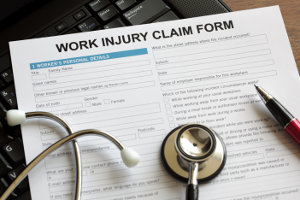Blog
5 Facts Drivers Should Know About 18-Wheelers
On a daily basis, drivers across North Texas find themselves commuting alongside large 18-wheelers. Although it’s almost impossible to avoid finding yourself in close proximity to one of these huge vehicles, it’s essential that you understand how to protect yourself, your loved ones and your vehicle.
Staying informed is always the first step on the path to staying safe, which is why we’ve compiled five important statistics that every driver should know about 18-wheelers and big rig accidents before they head out on the road.
There are over 3.5 million 18-wheeler drivers on the road annually.
The odds of you finding yourself in a situation where you need to drive defensively and vigilantly near a semi-truck is high. With millions of truckers driving on American highways throughout the year, there’s no excuse for not taking the necessary precautions to be safe on the road.
Almost 5% of Semi-Trucks Are Carrying Hazardous Materials
The Federal Motor Carrier Safety Administration, or FMCSA, provides overviews of the type of cargo that big-rig trucks in North Texas and across the United States are carrying. According to their statistics, well over 500,000 semi-trucks carry hazardous materials, and thousands of these are involved in crashes.
The drivers in close proximity to these vehicles risk exposure to the dangerous substances being transported, which is all the more reason to stay vigilant, aware and safe while driving!
Over the Past Decade, Semi-Truck Accidents Have Increased By Over 50%
As the number of truck drivers continues to increase, the number of accidents is, unfortunately, increasing as well. It is important for drivers to realize that 18-wheeler accidents are not “once-in-a-lifetime” incidents and, instead, happen multiple times on a daily basis across the country.
One Out of Every Eight Trucking Accidents is Fatal
Trucking accidents don’t just happen often; they also result in a significant loss of life. Due to the size and speed of these vehicles, wrecks involving 18-wheelers are typically just “fender-benders”. This is yet another reason why it is so important to stay alert on the road. Simple mistakes can create catastrophic results.
Semi-Truck Accidents Can Be Caused By A Variety of Factors
We often hear about truck drivers working long hours, but fatigue isn’t the only factor contributing to semi-truck accidents. According to the FMSCA, truck driver fatigue accounts for approximately 13% of all trucking accidents. The remainder are due to a variety of other factors, including equipment failure, vehicle maintenance issues and other technical problems.
Rachel Montes Is Ready To Help Semi Truck Accident Victims in North Texas
Rachel Montes and the Montes Law Group are committed to providing drivers with the resources and support they need following big rig accidents and semi-truck accidents across Irving and North Texas. If you or a loved one have been injured by a semi-truck, call us today at (214) 522-9401 for a no-obligation case evaluation.
Hispanic Worker Job-Related deaths saw increase
The number of contractors and Hispanic workers who died on the job increased in 2013 even as the overall tally of worker deaths declined, according to preliminary data released Thursday by the U.S. Bureau of Labor Statistics.
In all, 4,405 workers died from injuries sustained on the job last year — 223 fewer than the BLS reported in 2012. That equates to a rate of roughly 3.2 deaths for every 100,000 full-time equivalent workers, down slightly from 2012.
The new tranche of data came on the same day that the Occupational Safety and Health Administration released a final revised rule requiring employers to notify OSHA within eight hours if an employee dies and within 24 hours when an employee is hospitalized, suffers an amputation or loses an eye. Previously, employers were only required to report deaths and the hospitalization of three or more employees.
“Forty-four hundred five on-the-job deaths is 4,405 too many,” David Michaels, assistant secretary of labor for occupational safety and health, said on a conference call with reporters. “We can and must do better.” Read More
More Construction Accident Deaths in Texas
The Dallas Morning News uncovered some surprising and troubling statistics concerning deaths in the workplace in Texas. After conducting a statistical review of workplace deaths, Texas was the deadliest state for construction workers, experiencing 4,593 deaths, which is 579 more deaths than researches expected to find. This is in stark contrast to the state of California, whose construction work force is larger than Texas, but experienced over a thousand less deaths than expected. Read More
Injury Law: Will You Get More Money if You Settle By Yourself?
I am a board certified personal injury specialist. I have devoted my entire legal career to representing individuals and families who have suffered a tragic loss, either a life-changing injury or the death of a loved one, because of the negligence of someone else. After trying numerous cases in front of juries and judges, and being entrusted with hundreds of my clients’ caes over the years, I feel confident in answering this: no.
Why?
The insurance companies representing people and businesses that have been careless, reckless and/or negligent have been trained in negotiation, claims handling, and how to get the best deal that he/she can for the insurance company. In other words, adjusters are paid to save the insurance company money, not to take care of you or your family. They do this very well, and the insurance companies’ profits are proof of this. The bottom line is that insurance companies are billion dollar companies, and they got there by making the best deals for themselves, not for you, the injured person. Insurance companies and their employees are specifically trained to know how get away with paying as little as possible to take care of you and your family, why not have someone in your corner who knows how to make sure that the insurance companies are covering all of your harms and losses? Why not have someone who will present evidence and proof of all of your harms and losses, with the goal of making you 100% whole again? Read More
Rachel Montes on Depositions: Use and Benefits
We at Montes Law Group, PC are trial lawyers. We hold 3 Board Certifications between us, which means all of our attorneys have tried numerous cases to a jury, passed a rigorous test, and received the praise of fellow colleagues and judges we have practiced in front of.
A deposition is the best way to evaluate the strengths and weaknesses of both your case, as well as your opponent’s case. It also enables you to gauge your adversary. Often, an adversary who conducts himself poorly at deposition, will exhibit the same poor behavior at trial.
Other discovery devices are available which will help gather information and evidence about your case, such as written discovery, comprised of interrogatories, requests for production of documents and things, and requests for admission, none is so valuable as the deposition.
Oral depositions give you the chance to realize the nature and degree of the deponent’s knowledge. Depositions should always be taken with trial in mind, as though a jury were present. Taking a witness’ deposition will serve to put you on notice of the testimony which can be expected at trial. On occasion, a deponent will be unavailable to testify at trial, and the use of a deposition will effectively preserve that testimony and be useful at trial. Similarly, exhibits which have been marked at deposition, along with transcript testimony, are very effective cross-examination devices. Read More
Police Departments and Their Officers: Too Much Power?
WHY POLICE DEPARTMENTS AND THEIR OFFICERS SHOULD BE ACCOUNTABLE AND RESPONSIBLE WHEN POWER IS ABUSED
We look to our police officers for safety, security and community. We tell our children to “look for a police officer” if they are lost. We donate to help the families of officers killed in the line of duty. We need our police force, and we need good officers to protect and serve us, so we, as a society of reasonable people, grant them powers which are above and beyond the average citizen. We arm them with guns, we train them, we arm them with tasers. We trust them.
But is our trust misplaced? Read More



